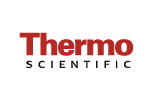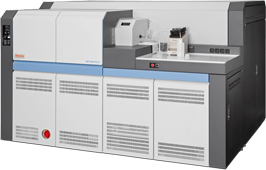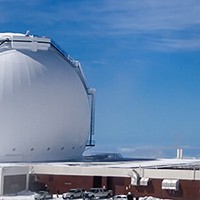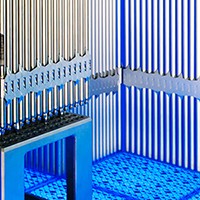Neptune Plus
Another Step ahead in Multicollector ICP-MS
Meet the ever-expanding application demands of earth sciences, nuclear sciences and other fields requiring high-precision isotope ratio measurements with the Thermo Scientific™ Neptune Plus™ high resolution multicollector ICP-MS. The Neptune Plus combines field-proven technology of the Neptune with the latest innovations. This powerful double-focusing mass spectrometer, with high mass resolution, variable multicollectors, and multi ion counting capability, offers ground-breaking sensitivity, high dynamic ranges, unsurpassed linearity, and robust stability.
Jet Interface for Ultimate Sensitivity
The jet interface increases sensitivity 10-20 times across the entire mass range in desolvation mode.
Fully Flexible Detection System
The high-performance Faraday cups used in the Neptune Plus are laser machined from solid carbon to guarantee uniform response, high linearity, low noise, and long lifetimes; they completely eliminate the need for cup factors. The Faraday cups can be connected to any resistor, ranging from 1010, 1011, 1012 and 1013 ohm amplifiers. Up to 10 current amplifiers with independent gains can be installed simultaneously. The virtual amplifier concept uses all amplifiers to measure all Faraday cup signals, effectively cancelling out all amplifier calibration biases and maximizing measurement precision. Software control of the amplifier/Faraday cup connections allows amplifier configuration to be configured to the needs of each experiment and its required precision.
The optional available retarding potential quadrupole (RPQ) lenses improve abundance sensitivity by one order of magnitude. The flexible multi-ion counting (MIC) arrays of discrete-dynode electron multipliers provide ultimate detection efficiency for small sample amounts. Up to eight discrete dynode electron multipliers can be installed at one time.
High-Resolution Double-Focusing Analyzer
The ICP interface from the Neptune Plus is based on the proven technology used in the Element 2/XR. It improves resolution, reducing the initial kinetic energy spread by capacitively decoupling the plasma from the load coil. The double-focusing mass analyzer focuses both ion energy and angular divergence for superior mass resolution and independent source and detector slit settings enhance mass resolution by separating molecular interferences from elemental peaks. The wide detector slit in all resolutions guarantees the widest peak flatness at high resolving powers, a prerequisite for highly precise and accurate isotope ratio analyses. Low, medium and high resolution settings can be selected with a single mouse click.
On-line and off-line data evaluation packages are available, including statistical capabilities and display of the results in spreadsheet or graphical form. Users have access to all raw data and can monitor the results online during the analysis. The sequence editor provides automatic, unattended acquisition and evaluation of samples including sample/standard bracketing and blank subtraction. Triggering of, or triggering from coupled devices, e.g. from a laser system, is fully supported. The software allows data to be evaluated and flexibly exported; ideal for laser ablation, GC and HPLC applications. Also additional software packages dedicated to the evaluation of transient signals are available.
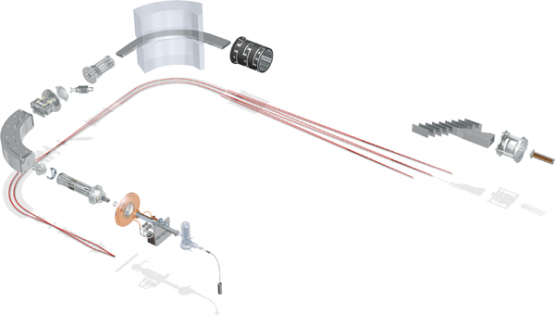
Features
- Jet Interface for ultimate sensitivity
- High mass resolving power for interference-free isotope ratio measurements
- Superb mass bias stability
- Fully flexible detection system comprising Faraday Cup and Ion Counting detectors
- Proven innovative amplifier technology using 1013 ohm resistors enabling 4-5 times better signal/noise for small samples
- ICP at ground potential enabling easy coupling of external devices such as Laser Ablation, GC and HPLC systems
